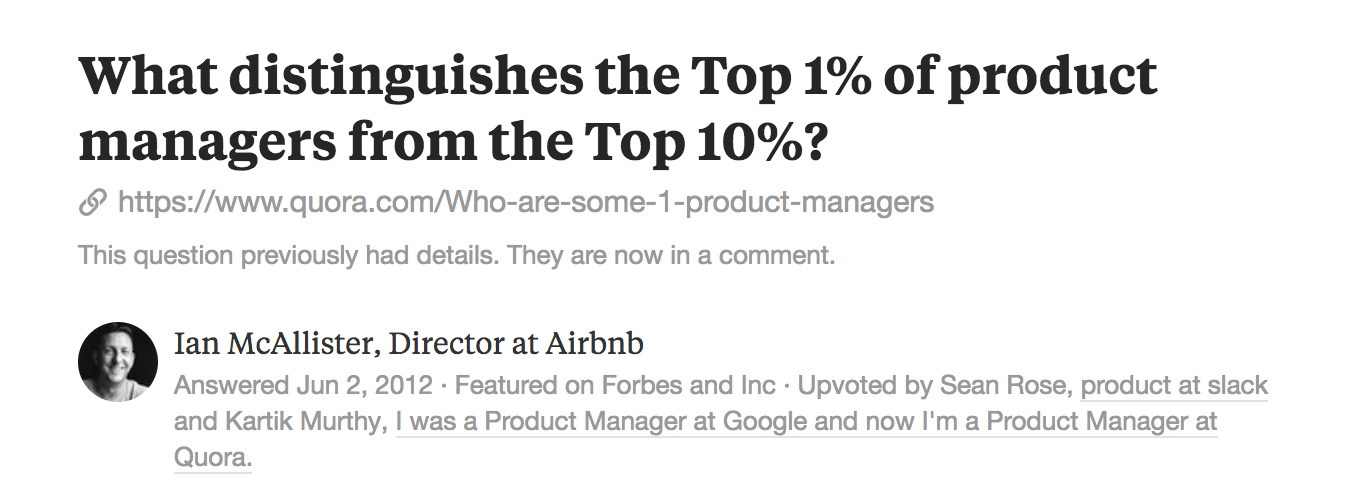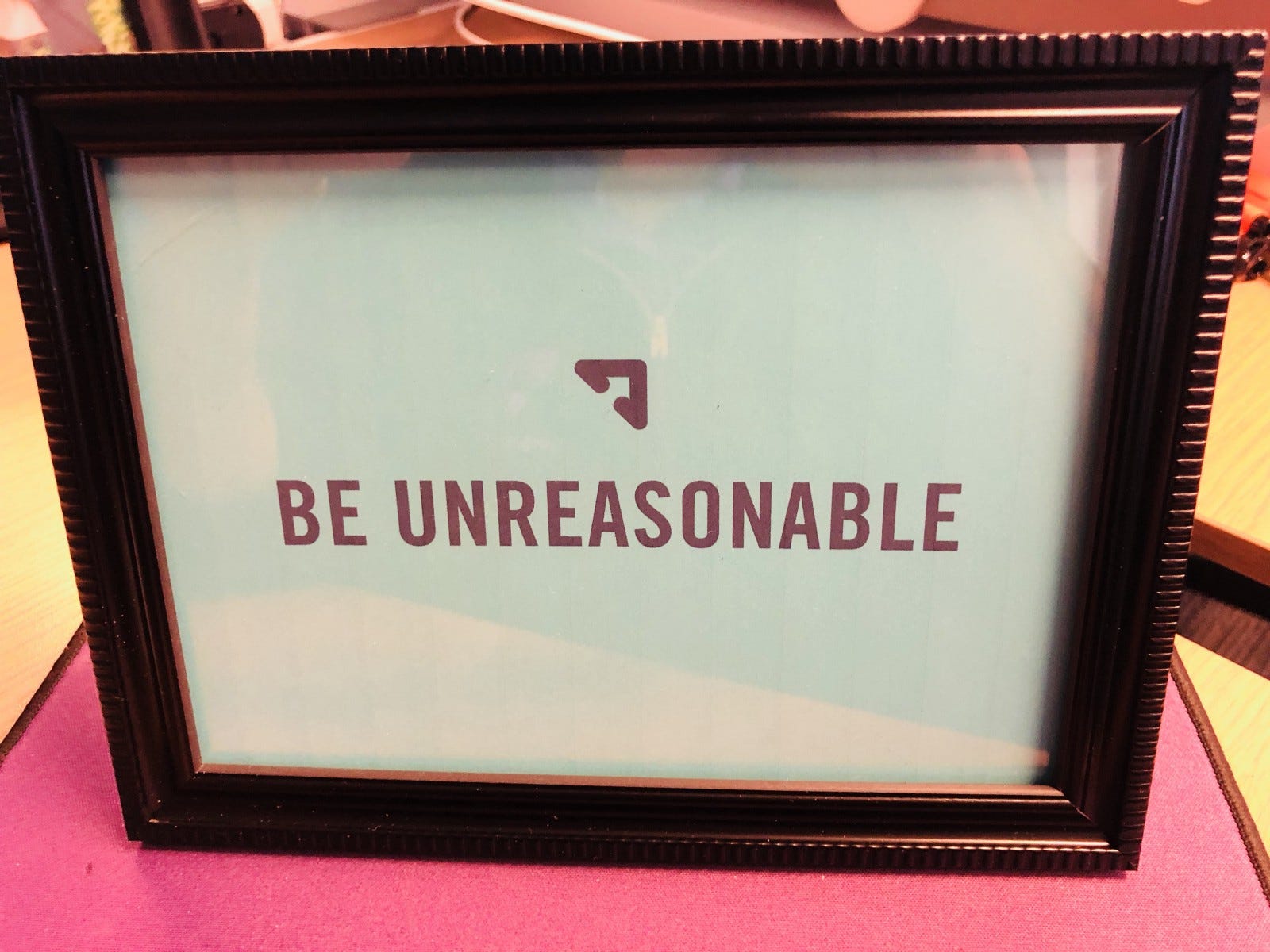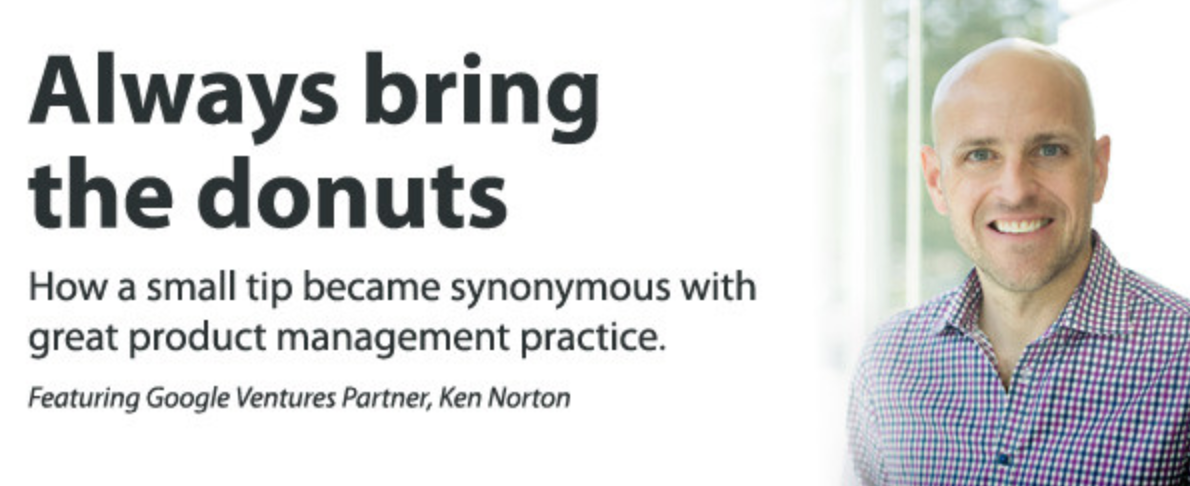I recently wrote a post on the Top 10 Books for Product Managers of All Levels that got a great amount of interest and readership from the Product community, thank you!
Given that level of interest, I wanted to follow up with a post on the Top 10 Blog Posts for Product Managers of All Levels.
Similar to the “Top 10” landscape for Product books, there are a ton of these lists out there, but all of these lists are missing one important thing: They don’t acknowledge that Product Managers of different experience levels should read different blog posts.
New or Aspiring Product Managers are simply trying to learn how to break into the career, what exactly a Product Manager does, and how to position themselves for a strong start.
“Leveling Up” Product Managers are trying to find their next step, whether that is a Senior PM, a Director of Product, or something similar. They need to learn how to lean into their Product strengths and how to think more strategically.
Advanced Product Managers have leveled up (maybe even a few times), but are still looking for ways to stay fresh and at the top of their game. They want to stay ahead of the latest trends, recruit top Product talent, and build winning Product organizations.
Top Blog Posts for New Product Managers (0–2 years experience)
Why it’s great for New PM’s: This classic post (from 1997!) written by Ben Horowitz simply doesn’t get old. While some of his examples may be out of date (how many Product Managers send in weekly status reports?), that is besides the point.
The simple point/counter-point phrasing of Horowitz’s post makes it very clear what makes you a “good” Product Manager and what makes you a “bad” one. Read this post a few times and you’ll have Horowitz’s guidance echoing in your head as you begin as a Product Manager.
2. How to Work with Software Engineers

Why it’s great for New PM’s: Most new Product Managers simply haven’t worked with Engineers closely before. Even if they were a developer themselves, the Product Manager / Engineering team dynamic is completely different than the solo contributor / Engineering team dynamic.
I love this post because I see new Product Managers consistently make the same mistakes working with Engineers (I made these mistakes too!). It also is written in a humorous style that makes it a very fun read.
Don’t be the Product Manager in this post who absorbs praise, skips the details, doesn’t share the reasons behind the work, and commits for the team!

Why it’s great for New PM’s: Adam Nash has been a Product leader at many major tech companies (Wealthfront, LinkedIn, eBay, Apple) and has a lot to share in this post for a new Product Manager. Nash communicates what he sees as the top 3 responsibilities of a Product Manager very well (Strategy, Prioritization, Execution).
My favorite part of his post is how beautifully he ends it:
“In the end, great product managers make things happen. Reliably, and without fail, you can always tell when you’ve added a great product manager to a team versus a mediocre one, because very quickly things start happening.”
Top Blog Posts for Leveling Up Product Managers (2–5 years)

Why it’s great for Leveling Up PM’s: Paul Graham is well known for his insightful writing and being a founder of the accelerator YCombinator (read my latest post on YC here: The 10 YC Companies (S18) I’d Invest In). In this post, Graham made what was a somewhat controversial assertion at the time: he told founders to do things that don’t scale.
This was an especially challenging concept for me early in my Product career. If I ultimately want my Product to scale, why would I do anything that couldn’t be efficiently scaled?!
In retrospect, the answer is clear: You don’t know what the right answer is, you need to think creatively, and you need to move FAST. You simply are fooling yourself and failing your team if you are trying to build solutions that scale infinitely as your MVP.
While at Upside Travel, I wrote this post about how I did something that definitely didn’t scale to help test and launch our Uber rides feature.
5. What Distinguishes the Top 1% of Product Managers from Top 10%?

Why it’s great for Leveling Up PM’s: After your first few years in Product, you’ll likely start to understand yourself what separates Product Managers from Bad → Ok → Good → Great → Exceptional.
Ian McAllister’s post itself is nothing short of exceptional. He outlines the major characteristics that will help make you a Top 1% Product Manager. If you’re only hitting a few of these skills, that puts you in the top 10%. Not hitting any yet? Develop a plan to pick them off 1-by-1.
6. Product Strategy Means Saying No

Why it’s great for Leveling Up PM’s: As a Product Manager in your first few years, you’ll probably have a hard time saying no. You want to make everyone happy, you want to over-deliver, you want to be a high achiever.
However, if you aren’t learning how to say No, you simply can’t achieve the goals of your team and your organization. You’ll make your stakeholders happy in the short-term, then majorly disappoint them in the mid and long-term when you have produced a lot of half-built, half-thought-out features that don’t solve any real problems.

Self Promotion Alert!The author of this blog post also wrote the Be Unreasonable blog post. However, I strongly believe it is a must-read for leveling up Product Managers. It should help you continue to push the boundaries of what’s possible and build something that customers want.
Why it’s great for Leveling Up PM’s: Don’t play by the rules. Your role as a Product Manager will be surrounded by real and imagined “rules.” These rules will try to prevent you from achieving success as a Product Manager.
Being “unreasonable” sounds intense, but really it’s more about finding deeply creative solutions, making disruptive changes, and keeping up a fast, but healthy, pace of development.
Top Blog Posts for Advanced Product Managers (>5 years)
8. The Only Thing that Matters

Why it’s great for Advanced PM’s: Written by the other half of venture firm Andreessen Horowitz, Marc Andreessen shares his key learning from working with hundreds of startups:
The only thing that matters is getting to product/market fit.
As a Product Manager, especially an advanced one, you are critically responsible for that mission. Without a market and a Product that fits in that market, your company won’t exist for long.
9. How to Hire a Product Manager

Why it’s great for Advanced PM’s: Ken Norton is back (again!) with a well-written post on the key skills that matter for hiring Product Managers. As an Advanced Product Manager, it’s likely you’re managing a team of Product Managers or at the very least, you are interviewing lots of new Product candidates.
Norton focuses on several key characteristics that separate a great Product hire from a good one: intellectual horsepower, some technical roots, creativity, leadership, and someone who has shipped.
My favorite part of this post is that it isn’t prescriptive. “Technical roots” does not equal computer science major. “Has shipped” does not equal “has done product before”. To channel one of my favorite quotes from Jeff Bezos: “Be stubborn on vision, but flexible on details.”
10. Roadmap Planning in an Agile World

Self Promotion Alert!The author of this blog post also wrote the Roadmap Planning in an Agile Worldblog post. However, I strongly believe it is a must-read for Advanced Product Managers who are responsible for building a cross-team, cross-function, or cross-company roadmap.
Why it’s great for Advanced PM’s: As you level up several times as a Product Manager, you’ll find yourself more and more responsible for planning the next quarter or next year’s Product roadmap for your company.
But wait, aren’t we agile?
Don’t we decide each sprint what we want to build?
How can we possibly forecast the future without wading into the dreaded world of waterfall planning?
Roadmap Planning in an Agile World shares how you can plan for a quarter at a tech company without committing to release dates, specifying how features will be built, etc.
Additionally, this post shares the benefits of this type of longer-term planning: specifically, how it helps having a strong strategic vision for the Product team, the value of quarterly OKRs (Learn more about OKRs here), and establishing a new quarterly feedback loop.
Which Posts Did I Miss?
I hope you enjoy these blog posts as much as I have over my Product career. I still re-read these frequently, so that I don’t lose their important lessons.
Please share any posts I may have missed in the comments!



0 Comments